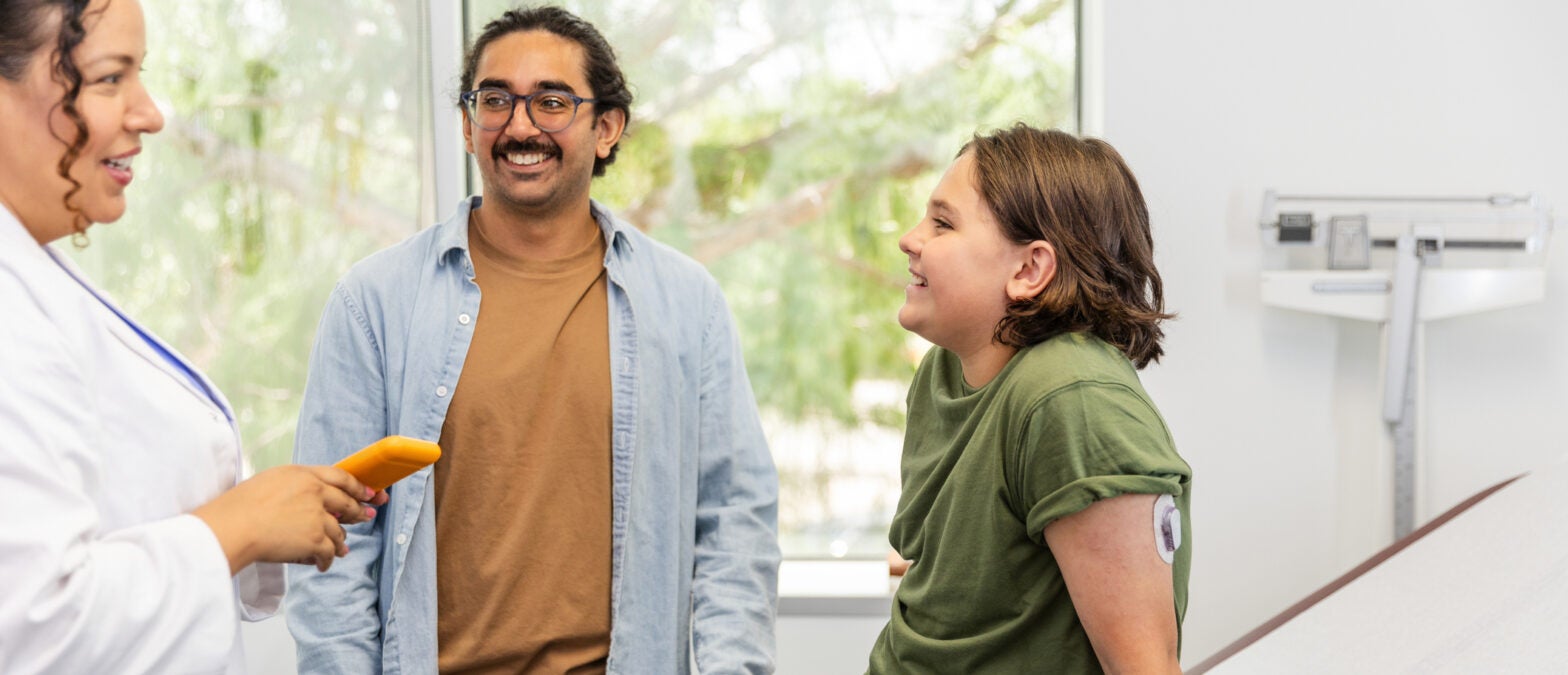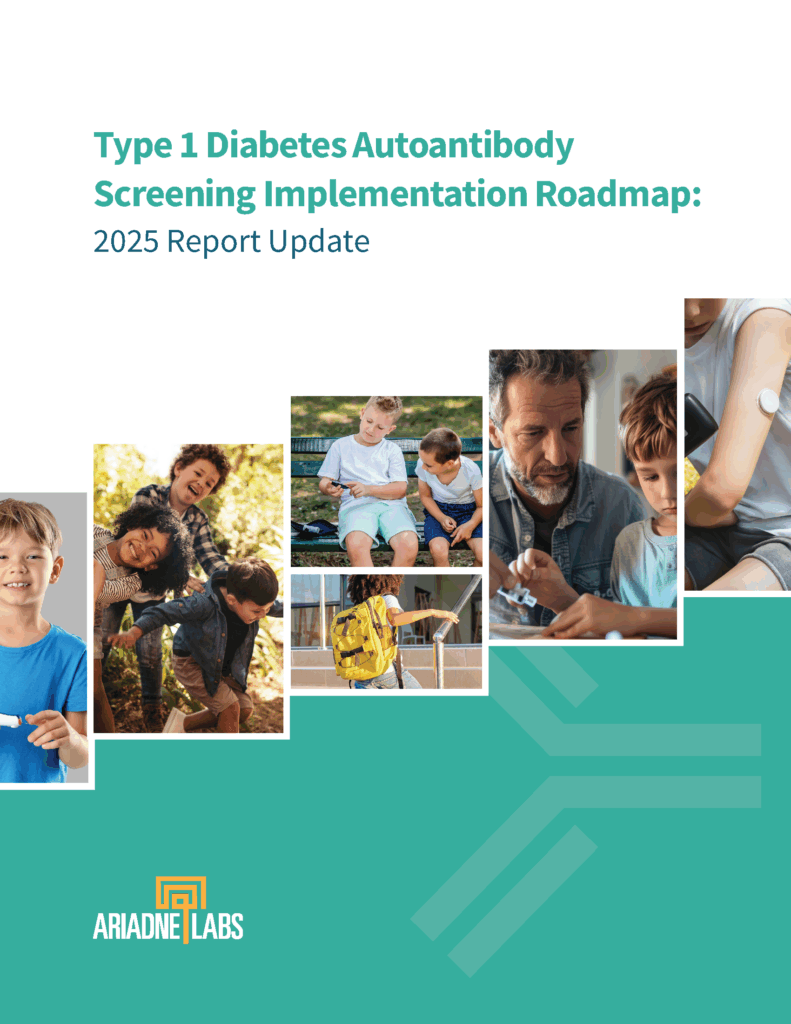Ariadne Labs releases landscape report; launches Coalition for action on type 1 diabetes risk screening
For most children with type 1 diabetes, diagnosis occurs only after a serious medical event. Warning signs can be subtle and easy to miss until they become severe, and many children are only diagnosed once admitted to the hospital already in diabetic ketoacidosis, a life-threatening complication. Caregivers and children alike are instantly thrust into an overwhelming new role learning to check blood sugars, give insulin, monitor diet, and more.
In 2024, Ariadne Labs launched an effort to identify opportunities to bring earlier screening for type 1 diabetes risk to more patients. In recent years, autoantibody screening has made it possible to identify children who may be at increased risk for developing type 1 diabetes. Once this risk is known, children can be regularly monitored and given therapies to delay or the onset of symptomatic disease. Children can be diagnosed earlier and begin managing their condition, so that they avoid the complications that lead to hospitalization. Parents can be better prepared from the start to help their child manage this lifelong condition.
So, why isn’t this screening more widely available?
A 2021 Milken Institute report provided guidance on implementing autoantibody screening and outlined four key goals to support implementation: developing clinical guidelines; promoting continued development, validation, and authorization of screening assays for ambulatory care; building the evidence base; and supporting efforts to expand the pipeline of therapeutics for disease prevention. Since that time, progress has been made on each of these goals, and the field has continued to advance, inspiring the need for follow-up research efforts to reexamine the landscape and invigorate implementation efforts.
The Ariadne team has interviewed 21 payers, pediatric endocrinologists, physicians, primary care pediatricians, caregivers, parents, and other stakeholders, informing development of a just-published landscape analysis report. The report reflects the ongoing commitment of the community to T1D screening for the general population and highlights areas where additional work or collaboration is needed.
“Our landscape report highlights that while significant progress has been made, there are still key opportunities for improvement to ensure stakeholders can move forward with widespread adoption of screening,” said Francine Maloney, Director of Implementation of Ariadne Labs. “This report provides an updated snapshot of current barriers and opportunities, and we hope to put steps in place to take meaningful action toward improving care for type 1 diabetes.”
In addition to the report, the team has launched the U.S. Coalition for Early T1D Action, a group of 20 clinicians, researchers, policy makers, payers, health care administrators, and caregivers. For two days in April 2025, the Coalition convened at the Ariadne Labs offices in Boston, MA to discuss the current landscape and begin identifying possible solutions to support broad implementation of screening and follow-up care.
Coalition members emphasized the need to build a stronger evidence base before pursuing widespread adoption of screening and discussed the importance of using implementation science approaches to evaluate screening and monitoring in real-world settings. Speaking to a solution itself, coalition members highlighted that the solution must be culturally competent, simple, and adaptable for different local contexts.
“This Coalition represents a transformative opportunity to improve lives through early diagnosis and intervention,” said Martha Middlemist, MD, FAAP, a Coalition member and board-certified pediatrician practicing at Pediatrics 5280 in Centennial, Colorado. “I’m inspired by the potential impact of this group in advocating for policy change and driving universal screening to create meaningful change for individuals and families affected by type 1 diabetes.”
Since the April convening, the group has been co-designing a prototype clinical pathway and accompanying tools to support T1D screening and monitoring in pediatric primary care settings. The Coalition will reconvene in person in November immediately following the 8th Symposium on General Population Screening for T1D in Aurora, Colorado, to share progress, align on next steps, and continue advancing the initiative.




